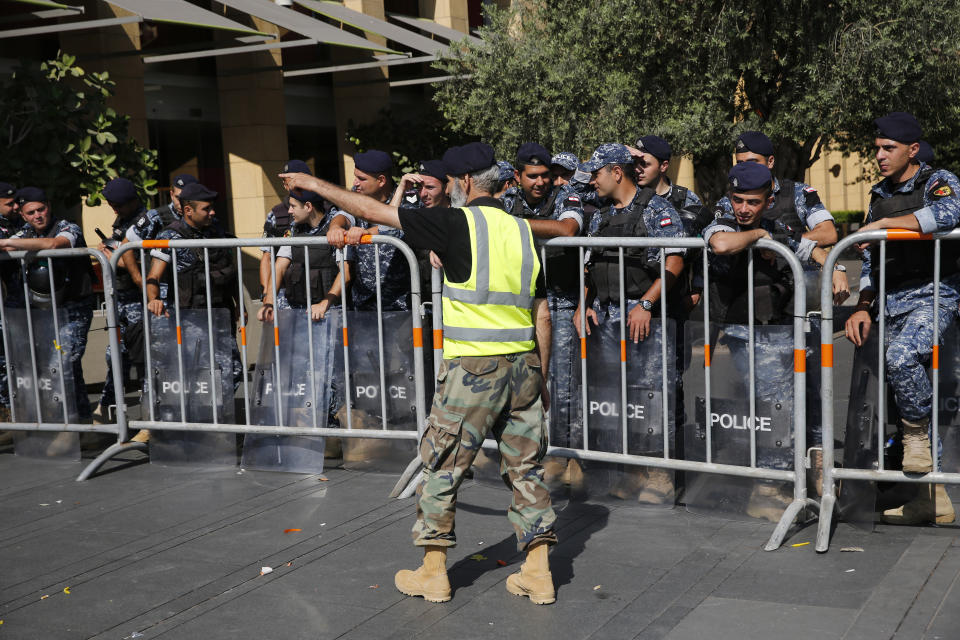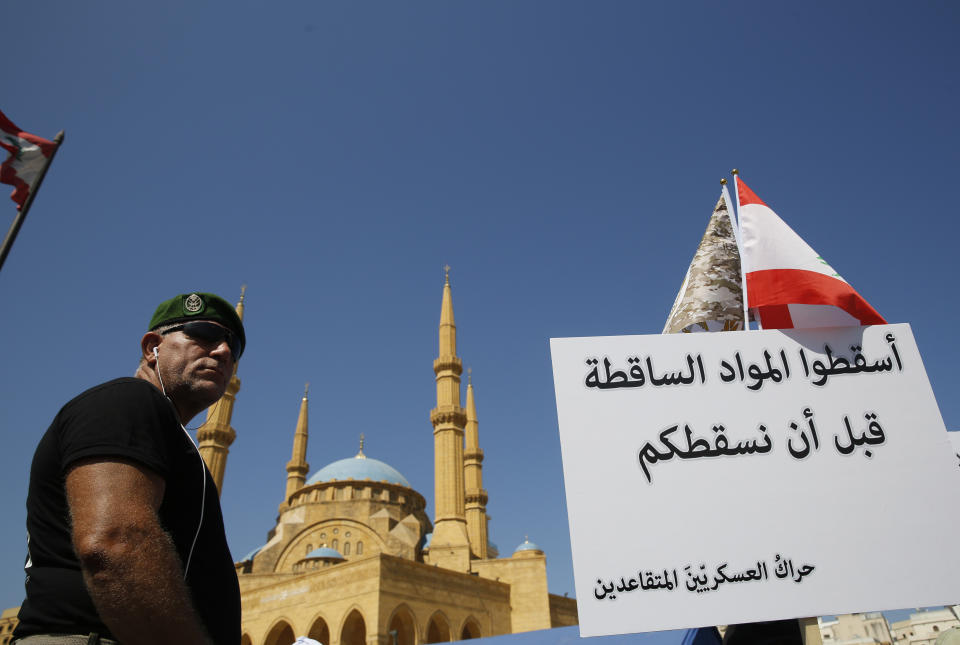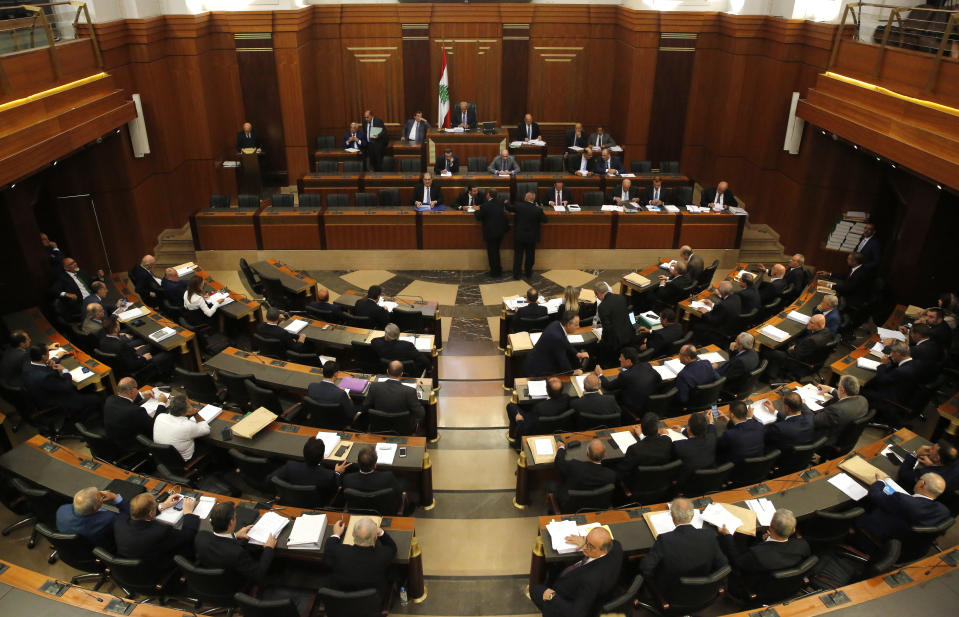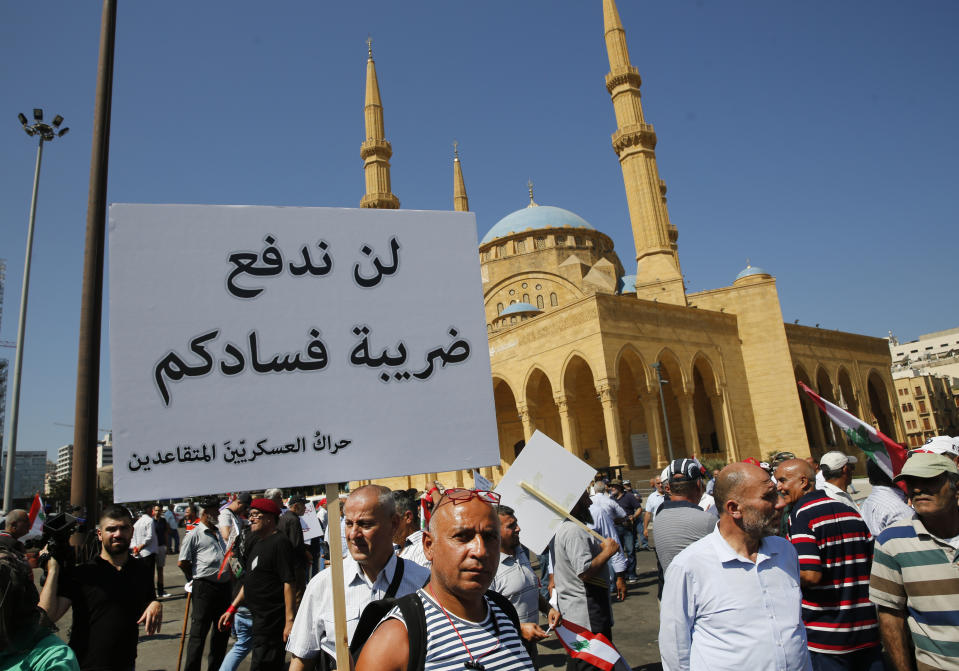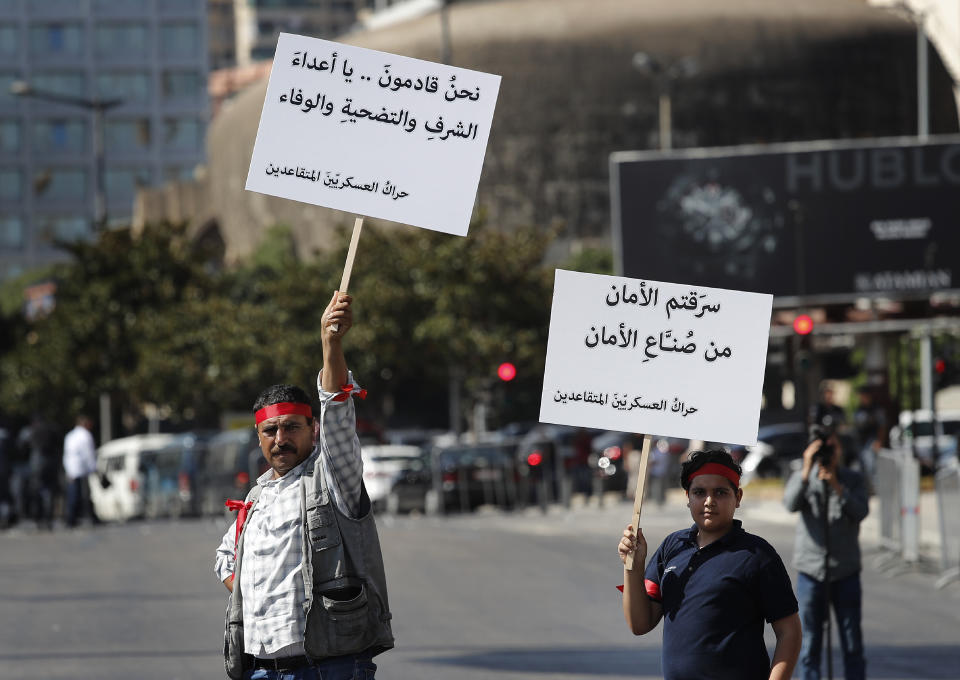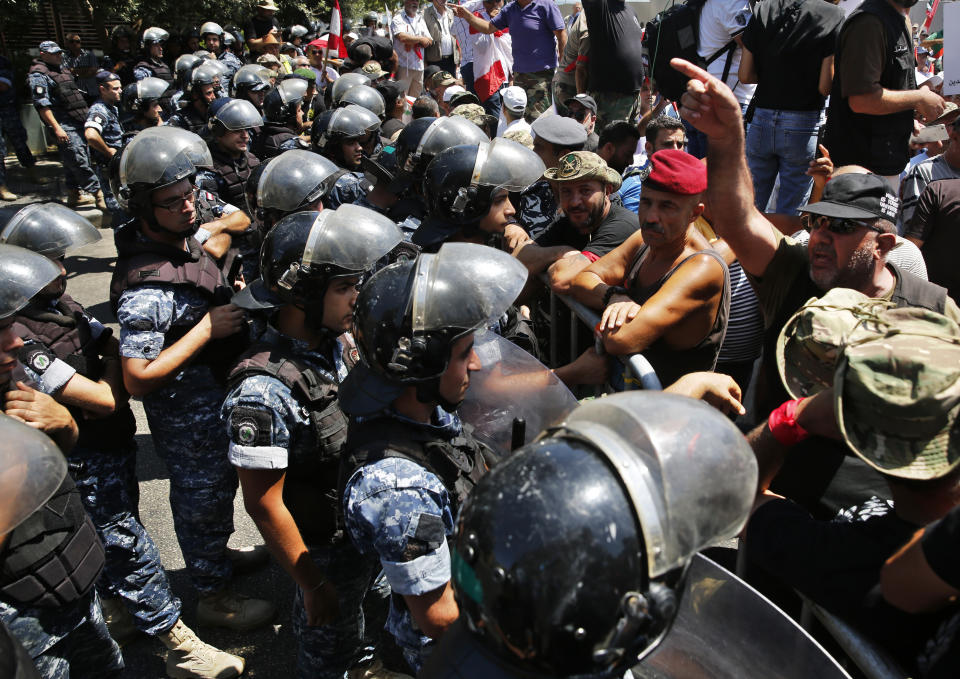Lebanese parliament convenes on budget amid tight security
BEIRUT (AP) — Under tight security, Lebanese lawmakers on Tuesday began discussing the draft 2019 state budget that aims to avert a financial crisis in the heavily indebted country by raising taxes and cutting public spending.
The discussions were being held amid limited protests against proposed austerity measures.
The proposed budget aims to reduce the projected deficit to 7.6% of the gross domestic product, from 11.5% last year. The corruption-plagued country's public debt is 150% of the GDP, among the largest in the world, and there have been serious concerns about an economic crash.
The budget was approved by the government in late May and is expected to pass in parliament later this week. However, critics say the proposed measures fail to introduce serious structural reforms needed to rescue the flagging economy. Civil servants have been protesting for weeks, fearing the measures to be adopted would lead to wage cuts for state employees.
Roads leading to the parliament building in downtown Beirut were closed with roadblocks and checkpoints as the 128-member parliament convened Tuesday. Outside, a group of retired officers rallied against measures they fear would affect their end of service benefits.
"They are badly managing our budget, our money. That's why we have this recession in our economy ... it is because of their management," said retired general, Ali Omar, 60, referring to the country's politicians.
Lebanon is struggling not just with soaring debt, but rising unemployment and slow growth. The $85 billion debt and unemployment believed to be around 36% are compounding concerns that the country will finally cave in economically. Lebanon is also host to hundreds of thousands of Syrian refugees who fled their country's war, putting a further strain on finances.
Earlier this year, the ratings agency Moody's downgraded Lebanon's credit rating and outlook to negative, reflecting concerns that the country could default on its debts.
An International Monetary Fund mission that was in Lebanon earlier this month to report on the financial and monetary situation in the country said the government has an opportunity to implement fundamental reforms to rebalance Lebanon's economy. However it called for fundamental structural reforms in order to turn the tide.
Later on Tuesday, hundreds of Palestinians held a protest in Beirut against the Labor Ministry's crackdown on foreign labor, targeting anyone found working without a permit.
The campaign targets mainly Syrian laborers amid an outcry by Lebanese about what they say is unfair competition, but the move has angered Palestinian refugees in Lebanon who have lived in Lebanon for decades, unable to return to their homes, amid concerns they would also be targeted.
After decades in Lebanon, the Palestinians' numbers have dwindled to about 175,000, living in squalid camps with no access to public services, limited employment opportunities and no rights to ownership or protections.

